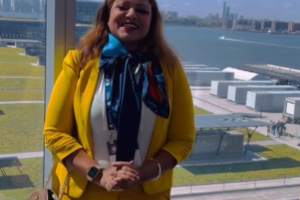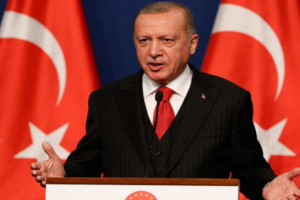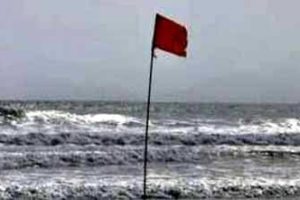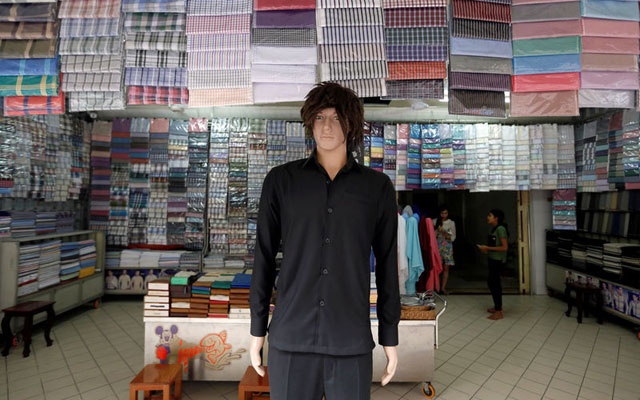From the moment US federal agents arrested a former Mexican defence minister last month on drug trafficking charges, the highest levels of the Mexican government were outraged at being kept in the dark about the case, seeing it as an egregious breach of trust between allies.
Those emotions reached a peak in recent days, as Mexico City issued an unheard-of warning to its counterparts in Washington: If the United States did not rethink its pursuit of Salvador Cienfuegos Zepeda, Mexico would consider expelling US federal drug agents from the country, jeopardising a decades-long partnership that has helped bring several top drug lords to justice, according to three people in the United States who are familiar with the case.
That threat appeared to work. On Wednesday, at the request of Attorney General William Barr himself, a federal judge in Brooklyn said she would formally dismiss the charges against Cienfuegos, a former army general.
The Justice Department’s reversal stunned officials in the State Department and in Congress, who said Cienfuegos’ release would be an abrupt departure from the Trump administration’s aggressive pursuit of organised crime and drugs from Mexico. The dismissal was said to especially anger officials with the State Department’s Bureau of Western Hemisphere Affairs, which oversees Mexico policy.
Seth DuCharme, a former top aide to Barr who now serves as the acting US attorney in Brooklyn, sought to explain the move, saying that by releasing Cienfuegos he was seeking to protect “the United States’ relationship with Mexico,” particularly where joint law enforcement matters were concerned.
But that explanation did not satisfy Sen. Bob Menendez, D-NJ, chairman of the Foreign Relations Committee, who said both Barr and Secretary of State Mike Pompeo needed to explain what had gone wrong.
“There is no explanation for Attorney General Barr’s decision to abruptly drop drug trafficking charges against General Cienfuegos,” Menendez said in a statement. “Cooperation with the Mexican government is essential for upholding our national security, and those bilateral ties must be built on common respect for our own rule of law and due process.”
In the past, US authorities worked with their Mexican counterparts in capturing major drug trafficking suspects, who are often arrested in Mexico, by Mexican forces. Barr visited Mexico City twice last winter to discuss with Mexican officials closer cooperation on gang violence, drug trafficking and immigration.
But in this case the Justice Department quietly indicted Cienfuegos last year, did not alert Mexican officials, and waited until he visited the United States to take him into custody. It is not clear what led the department to forgo Mexican cooperation, angering an important ally and leading to the embarrassing setback of dropping the case.
The release of Cienfuegos — who arrived back in Mexico on Wednesday, with no guarantee that he would ever face charges — illustrates how foreign policy can interfere with the day-to-day prosecution of the drug war. Prosecutors acknowledged the challenges in a letter to the Judge Carol B Amon, of US District Court in Brooklyn, saying they had dropped the charges because of “sensitive and important foreign policy considerations.”
Amon, in dismissing the indictment, appeared to agree that there was little else to do about the charges.
“Although these are very serious charges against a very significant figure, and the old adage ‘a bird in the hand’ comes to mind,” she said, “still I have no reason to doubt the sincerity of the government’s decision.”
One official familiar with the decision to drop the case cast doubt on the Justice Department’s claims that Cienfuegos’ release was the result of a formal policy between the United States and Mexico.
Word of the dismissed indictment was hailed as a triumph by the government in Mexico, where President Andrés Manuel López Obrador thanked the United States for “listening to our position and rectifying.”
The US ambassador had informed the Mexican foreign minister of Cienfuegos’ arrest soon after he was apprehended at the Los Angeles airport, sparking an uproar inside López Obrador’s nationalist administration.
In the days following the arrest, high-ranking officials gathered for a flurry of meetings in which they expressed fury at having been blindsided by one of their closest allies and strategised how to respond, according to two people familiar with the matter. The feeling in the room was not that Cienfuegos should have been spared prosecution, but that US law enforcement had violated their trust by keeping Mexico unaware of the investigation of such an important figure, the people said.
The military, one of the most powerful institutions in the country and a close ally of the president’s, was particularly livid at what was viewed as a violation of Mexican sovereignty. Enraged military officials pushed the government to take action.
The frustration quickly began to spill out into the public sphere.
When asked how to interpret the lack of communication from US officials, López Obrador did not mince words.
“What’s not fair is that they operate in Mexico, they even link up with Mexican institutions, they extract information and reach a resolution without informing the Mexican government what it is they’re investigating,” he said.
Marcelo Ebrard, Mexico’s foreign minister, suggested that the Cienfuegos capture had jeopardised the country’s extensive security cooperation with the United States. “There will be a revision,” of Mexico’s collaboration with the US Drug Enforcement Administration, Ebrard said in an interview with Proceso magazine.
“There will be cooperation, but it will have to be on a different basis,” he added. “Everything should be different.”
Cienfuegos, who had served as Mexico’s defence minister from 2012 to 2018, was charged in Brooklyn in October with laundering money and trafficking heroin, cocaine, methamphetamines and marijuana from late 2015 through early 2017 on behalf of the H-2 drug cartel, an offshoot of a larger and older criminal mafia, the Beltrán-Leyva organisation.
The charges were the result of a multiyear inquiry that investigators called Operation Padrino, or Godfather — a reference to what they claim was Cienfuegos’ nickname in the underworld. The investigation, which began in late 2013, was bolstered, court papers say, by a sprawling wiretap that covertly captured thousands of BlackBerry messages, some of which are said to implicate Cienfuegos in chatting and orchestrating meetings with cartel leaders.
Officials say that Cienfuegos helped the H-2 cartel, which has committed horrific acts of violence as part of its smuggling business, with its maritime shipments. In exchange for lucrative payouts, the officials say, Cienfuegos also directed military operations away from the cartel and toward its rivals.
At the court hearing Wednesday, DuCharme said his office remained confident in the strength of its investigation and “stands behind the case.” But under questioning by Amon, he admitted that the decision to drop the charges against Cienfuegos had been made “at the highest level of the Justice Department,” identifying Barr by name.
One of the people familiar with the matter said that the prosecutors who had built the case against Cienfuegos were “devastated” that their superiors had decided to drop the pursuit of him in US courts. Though Barr suggested in a news release Tuesday that Cienfuegos would be “investigated and, if appropriate, charged” in Mexico, it remained unclear what would happen.
Edward Sapone, Cienfuegos’ lawyer, said that he and partners had believed from the start of the case that their client’s arrest was unjust because it violated a treaty under which the US government had agreed to notify the Mexican government in advance about the arrest of any high-level suspect.
Sapone added that he had been prepared to challenge Cienfuegos’ arrest — in motions or at trial if necessary — but that late last week, federal prosecutors reached out to him to let him know they were considering approaching Amon with a motion to dismiss the charges.
“I commend to the US attorney’s office for making litigation unnecessary,” he said.





















